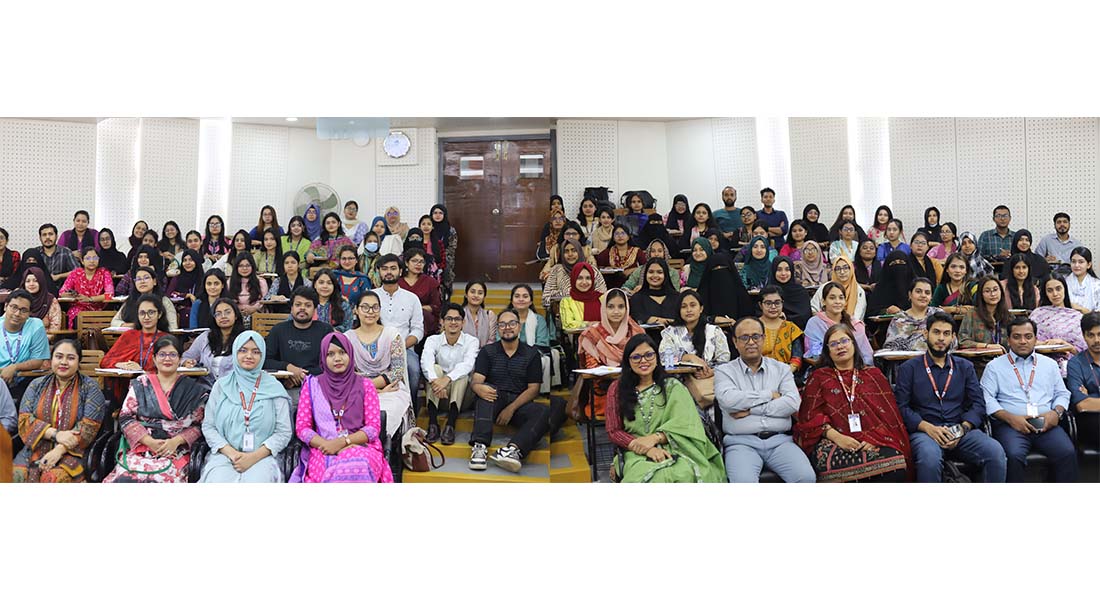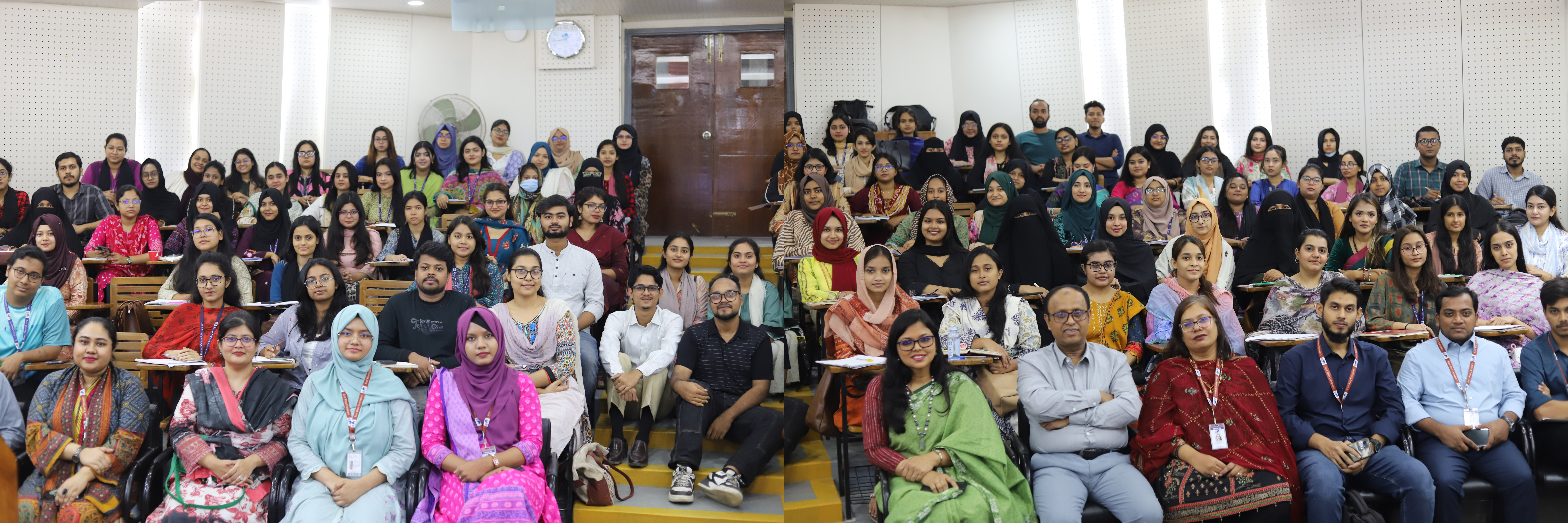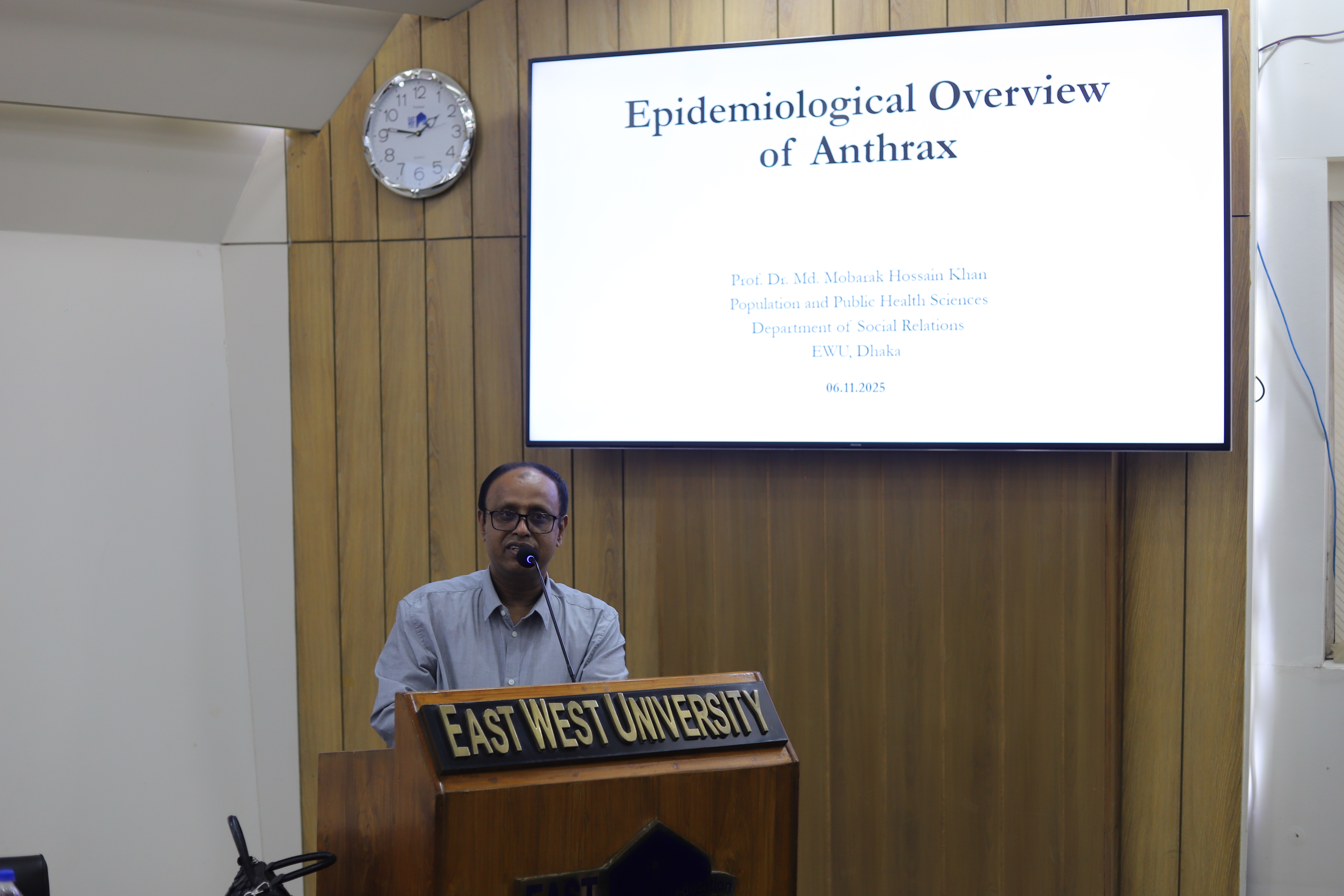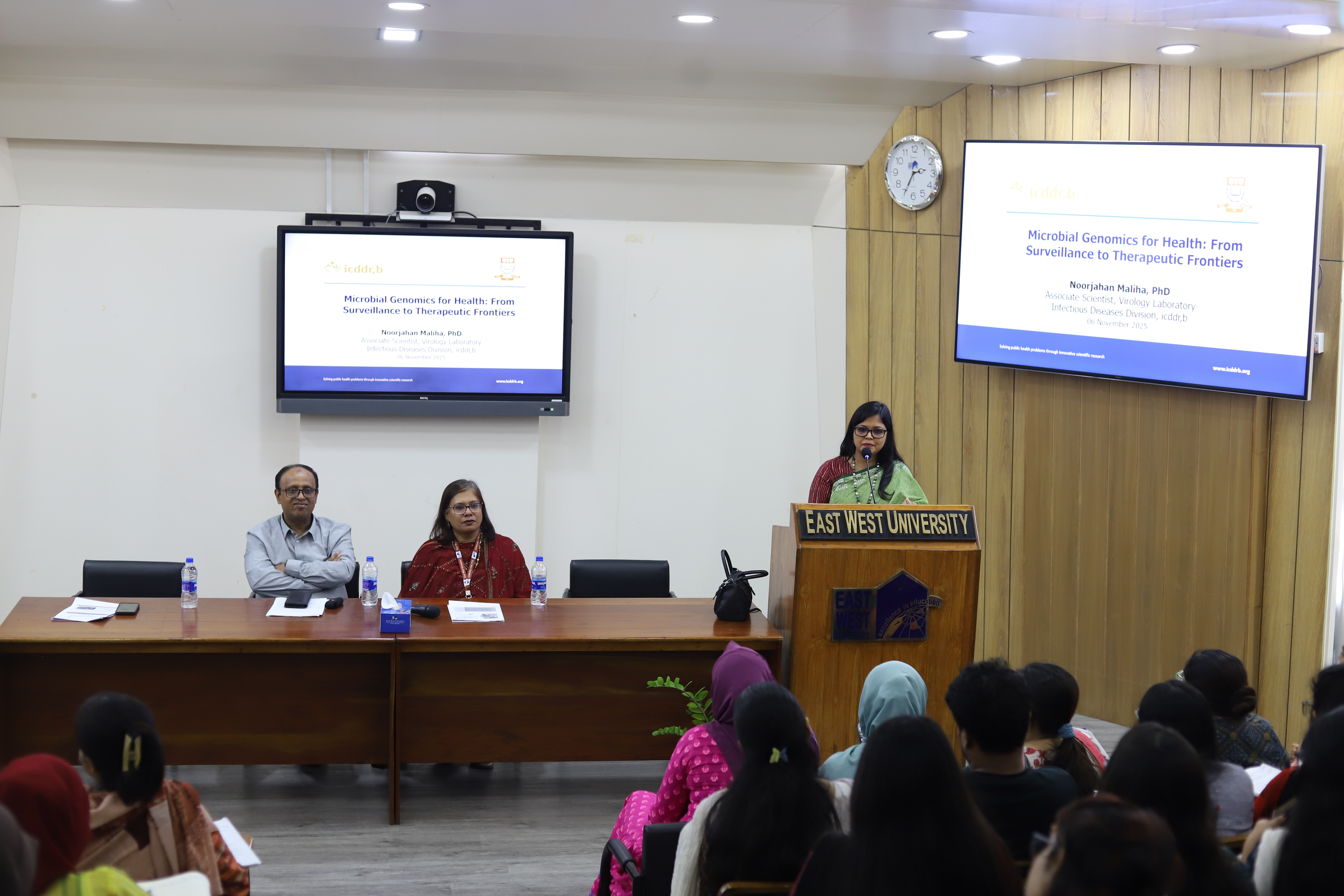






11
Nov
Recent Epidemic of Anthrax in Bangladesh: Role of Advanced Laboratory Methods for Better Prevention
Department of Social Relations of East West University organized a seminar on ‘Recent Epidemic of Anthrax in Bangladesh: Role of Advanced Laboratory Methods for Better Prevention’ on November 6, 2025, at 01.30 pm at Nousher Ali Lecture Gallery (Room # 126). The seminar was chaired by Dr. Touhida Tasnima, Chairperson, DSR and hosted by Ms. Rubayat Kabir, Senior Lecturer, DSR. Dr. Noorjahan Begum Maliha, Associate Scientist, Virology Laboratory, Infectious Division, icddr,b, delivered a speech as a guest speaker. Dr. Md. Mobarak Hossain Khan, Professor, DSR, and Dr. Marzia Zaman Sultana, Senior Lecturer, DSR, were internal speakers at the seminar. The seminar was organized in the context of the recent outbreak of human anthrax in some northern districts of the country. On August 19, 2025, a suspected anthrax outbreak occurred among 26 members of the local population of Sahjadpur. Since then, IEDCR has reported more than 200 cases in the four upazilas of Sirajganj and Pabna districts. Animal anthrax cases are endemic in Bangladesh, and as it is a zoonotic disease, occasionally, it can be transmitted to human populations. Human anthrax is found sporadically in our country, mainly among people who are involved in cattle farming, butchering sick cattle, and handling, cooking, or eating the meat of suspected animals with anthrax. Dr. Mobarak gave an epidemiological overview of anthrax globally and nationally, emphasizing the importance of knowing the risk factors and chain of infection for prevention. Dr. Marzia described the pathogenesis of human anthrax with diagnosis and treatment options available. Dr. Noorjahan explained the laboratory procedures for discovering new medicines and vaccines through the genomic analysis of microorganisms. She shared world-renowned inventions of icddr,b, that are playing a crucial role in fighting against infectious diseases and malnutrition among children. Students of Population and Public Health Sciences (PPHS), faculty members, and staff of the department attended the seminar. The seminar was aimed to create public health awareness among the university community, and the Department of Social Relations takes regular initiatives to arrange such seminars for this purpose.